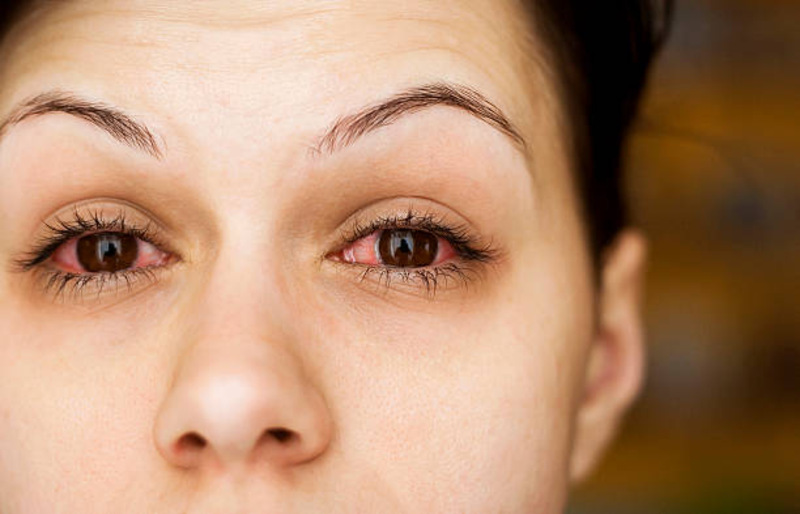Our eyes, often referred to as the windows to the soul, can also be considered windows to our health. They can reveal underlying health issues that might not exhibit any other symptoms. Here are five eye symptoms that should not be taken lightly, as they could potentially point to more serious health problems.
1. Persistent Eye Redness:
This could be a sign of Dry Eye Syndrome, an inflammation of the eyes caused by a decrease in tears and the oils which lubricate them. The condition can be very uncomfortable, causing burning or stinging sensations. It's best to consult your doctor if you experience persistent eye redness that doesn't seem to improve with regular over-the-counter eye drops.
Causes of Persistent Eye Redness:
- Dry Eye Syndrome
- Allergies
- Infection
- Corneal Abrasions
- Blepharitis (inflammation)
Symptoms Associated with Persistent Eye Redness:
There are certain conditions that may be associated with persistent eye redness. These can include: blepharitis, corneal abrasions, allergies and/or infection. Each of these conditions can cause varying levels of discomfort and should not be ignored. It is important to speak with an optometrist or ophthalmologist if you experience any of the following symptoms: persistent eye redness, burning or stinging sensations, blurred vision or sensitivity to light.
Complications from Persistent Eye Redness:
Persistent eye redness should not be ignored as it may lead to more serious medical issues such as infection, corneal ulceration or even permanent vision loss.
When to Seek Medical Attention:
If you experience any of the above mentioned eye symptoms that do not improve with regular over-the-counter treatments, it is important to speak to your doctor. Early diagnosis and treatment is key to ensuring optimal health and well-being. If you have any questions or concerns about potential illnesses, they will be able to provide guidance and resources for a proper diagnosis.
Diagnosis and Treatment of Persistent Eye Redness:
It is important to see your doctor for a proper diagnosis. Depending on the cause, they may suggest a range of treatments or therapies that can help to improve your condition. These may include prescription eye drops, steroids or antibiotics if an infection is present.
2. Sudden Vision Loss:
This could be a sign of a stroke or an eye infection, depending on which type of vision loss is experienced. If only one eye has lost its vision, it's likely an infection. Both conditions should be taken seriously and urgent medical attention should be sought immediately.
Immediate Steps to Take When Experiencing Sudden Vision Loss:
If you find that you are experiencing sudden vision loss, the first step to take is to visit your doctor or optometrist for a professional evaluation. You may be referred to an ophthalmologist in order for them to properly diagnose and treat any underlying conditions. It is also important to use protective eyewear when engaging in activities that could potentially cause eye trauma.
How Is Sudden Vision Loss Diagnosed?
If you experience sudden vision loss, your doctor may perform a number of tests and diagnostic procedures in order to determine the underlying cause. These tests typically include an eye exam to check for signs of infection or injury, imaging tests such as MRI scans or CT scans to look for any structural damage, and blood tests to assess for underlying medical conditions.
3. Constant Eye Fatigue:

If you're feeling eye fatigue more frequently than usual and it's not easily resolved by sleeping or taking a break from your screen, this could be a warning sign of an underlying health issue. It may indicate an infection, dry eyes, or even the early stages of diabetes.
Causes of Constant Eye Fatigue:
Constant eye fatigue can be caused by a number of factors such as computer vision syndrome, inadequate nutrition, and underlying health issues like diabetes.
Symptoms Associated with Constant Eye Fatigue:
There are certain conditions that may be associated with constant eye fatigue. These include:
- Dry eyes
- Blurred vision
- Headaches
- Excessive blinking and eye rubbing
It is important to speak with an optometrist or ophthalmologist if you experience any of the following symptoms for more than two weeks: persistent eye fatigue, blurring or double vision, sensitivity to light or difficulty focusing.
Complications from Constant Eye Fatigue:
It is important to seek medical attention if you experience persistent eye fatigue as it can lead to more serious health issues such as macular degeneration, glaucoma or even vision loss. It is also vital to have an eye exam regularly in order to identify any potential underlying problems.
When to Seek Medical Attention for Constant Eye Fatigue?
If you experience any of the above mentioned eye symptoms for more than two weeks and have difficulty with regular over-the-counter treatments, it is important to contact your doctor. Early diagnosis and treatment is key to ensuring optimal health and well-being. They will be able to provide guidance and resources for a proper diagnosis.
Diagnosis and Treatment of Constant Eye Fatigue:
If you experience any of the above mentioned symptoms, it is important to see your doctor for a proper diagnosis. Depending on the cause, they may suggest a range of treatments or therapies that can help to improve your condition. These may include eye drops, nutritional supplements, lifestyle modifications such as reduced screen time and increased breaks from focusing on tasks.
4. Frequent Eye Floaters:

Eye floaters are those small dots or shapes that drift around in your vision. Though a common occurrence, if you find yourself noticing more floaters than normal, this could be an indication of retinal detachment or bleeding in the eye. See your doctor if you experience persistent floaters accompanied by flashes of light.
5. Unusual Eye Sensitivity to Light:
If you're having difficulty with bright lights, or the whites of your eyes seem to have a yellowish hue, these could be signs of liver disease or jaundice. It's best to speak to your doctor if you experience eye sensitivity and any other accompanying symptoms.
Conclusion:
Our eyes can often give us clues about our overall health. If you experience any of the above eye symptoms and they don't seem to improve with regular over-the-counter treatments, it's best to consult your doctor for further evaluation. They will be able to determine whether there is a deeper underlying condition that may require medical attention. With early diagnosis and treatment, you can take the steps to ensure your health and well-being.




